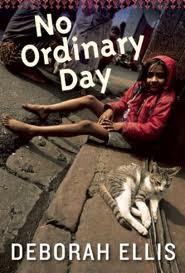Guan Yu, an ancient Chinese warrior, fights side by side with his blood brothers Liu Bei and Zhang Fei to squash the menacing Yellow Scarves. He defends his country and his honor, but his troubles are just beginning. All over China, opponents post grave challenges, each one more trying than the last. Will Guan Yu prevail against the forces that threaten him? Or will the obstacles prove too much for even the brave warrior?
Asia
Materials from Asia
Sri Lanka
China
Thailand
Describes the geography, history, government, economy, people, religion, language, and culture of Thailand, a predominantly Buddhist country located in Southeast Asia. Includes several recipes.
Sacred River: The Ganges of India
In the Sea There Are Crocodiles
When ten-year-old Enaiatollah Akbari’s small village in Afghanistan falls prey to Taliban rule in early 2000, his mother shepherds the boy across the border into Pakistan but has to leave him there all alone to fend for himself. Thus begins Enaiat’s remarkable and often punishing five-year ordeal, which takes him through Iran, Turkey, and Greece before he seeks political asylum in Italy at the age of fifteen. Along the way, Enaiat endures the crippling physical and emotional agony of dangerous border crossings, trekking across bitterly cold mountain pathways for days on end or being stuffed into the false bottom of a truck. But not everyone is as resourceful, resilient, or lucky as Enaiat, and there are many heart-wrenching casualties along the way. Based on Enaiat’s close collaboration with Italian novelist Fabio Geda and expertly rendered in English by an award- winning translator, this novel reconstructs the young boy’s memories, perfectly preserving the childlike perspective and rhythms of an intimate oral history. Told with humor and humanity, In the Sea There Are Crocodiles brilliantly captures Enaiat’s moving and engaging voice and lends urgency to an epic story of hope and survival.
The Rumor
In the village of Baddbaddpur, the people like to tell tales, “so tall that if you put them one on top of the other, they would reach the stars.” Pandurang is so dour that he can make milk turn sour. One day he coughs up a feather. As the story of Pandurang’s feather is passed from one person to another it grows and grows and grows until it can hardly be recognized. And that’s when the story weaves its magic on the ill-tempered Pandurang. An international version of “broken telephone” this is a funny cautionary tale about the nature of rumors.
Nur Jahan of India
From the deepest heart of the Moghul palace, her face hidden by veils, Nur Jahan came to rule all of Mogul India. This book tells the story of how she introduced efficiencies, encouraged trade, and made possible a great flowering of the arts. She hunted tigers, rode elephants to war, commanded a nation from behind a curtain, and did many other things that girls were not expected to do. Sections on the clothes Nur Jahan wore, the foods she ate, and why she is remembered today are included.
No Ordinary Day

Even though Valli spends her days picking coal and fighting with her cousins, life in the coal town of Jharia, India, is the only life she knows. The only sight that fills her with terror is the monsters who live on the other side of the train tracks — the lepers. When Valli discovers that that her “aunt” is a stranger who was paid money to take Valli off her own family’s hands, she leaves Jharia and begins a series of adventures that takes her to Kolkata, the city of the gods. Valli finds that she really doesn’t need much to live and is very resourceful. But a chance encounter with a doctor reveals that she has leprosy. Unable to bear the thought that she is one of the monsters she has always feared, Valli rejects help and begins an uncertain life on the street.
See the review at WOW Review, Volume 5, Issue 3.
Guru Nanak
Details the life and times of Guru Nanak, founder of the Sikh faith.

